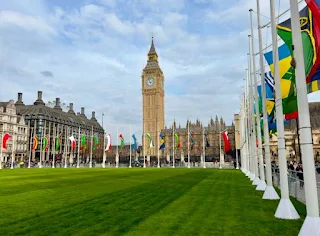The British Empire, which existed from the 16th to the 20th century, was a vast and complex system of government that stretched across a quarter of the world's land area. To understand the root of the Commonwealth, we need to explore the early colonial expansion and the rise of the British Empire.
Transformative Period: The Origin of British Colonial Expansion
The origin of British colonial expansion can be traced back to the 16th century, when the British began to establish trade relationships with other countries. The British East India Company, which was founded in 1600, played a central role in influencing British colonial expansion. The company's primary goal was to establish trade routes with the East Indies, but it eventually became a powerful force in shaping British colonial policy.
Establishment of Trading Posts and Overseas Colonies
The British established trading posts and overseas colonies in various parts of the world, including North America, Africa, and Asia. These colonies were established to extract natural resources, establish trade routes, and spread British culture and influence. The early phases of British colonial expansion were characterized by competition with other European powers, such as France, Spain, and Portugal.
The British Empire's Economic Ambitions, Military Progress, and Political Innovation
The British Empire's success can be attributed to a combination of economic ambitions, military progress, and political innovation. The British were skilled traders and entrepreneurs, and they established a vast network of trade routes that spanned across the globe. They also developed a powerful military that was capable of defending their colonies and expanding their empire.
The British East India Company's Central Role
The British East India Company played a central role in shaping British colonial policy. The company's primary goal was to establish trade routes with the East Indies, but it eventually became a powerful force in shaping British colonial policy. The company's influence can be seen in the establishment of British colonies in India, Africa, and Asia.
The Establishment of Self-Governing Dominions
As the British Empire expanded, the need for self-governing dominions became increasingly important. A dominion was a self-governing colony that was part of the British Empire. The dominions were established to give colonies more autonomy and political representation. Canada, Australia, New Zealand, and South Africa were among the first dominions to be established.
The British North America Act of 1867
The British North America Act of 1867 was a significant milestone in the development of self-governing dominions. The act established Canada as a self-governing dominion, with its own parliament and government. The act also established the office of the Governor General, who represented the British monarch in Canada.
The 1897 Colonial Conference
The 1897 Colonial Conference was a significant event in the history of the British Empire. The conference was attended by representatives from various British colonies, including Canada, Australia, New Zealand, and South Africa. The conference discussed various issues, including trade, defense, and governance.
Joseph Chamberlain and Queen Victoria
Joseph Chamberlain was a British politician who played a significant role in shaping British colonial policy. He was the Secretary of State for the Colonies from 1895 to 1903 and was a strong advocate for imperial federation. Queen Victoria was the British monarch from 1837 to 1901 and played a significant role in shaping British colonial policy. She was the symbol of the British Empire and was revered by many of her subjects.
The Contribution of the 1897 Colonial Conference
The 1897 Colonial Conference made significant contributions to the development of the British Empire. The conference discussed various issues, including trade, defense, and governance, and helped to establish a framework for imperial cooperation. The conference also marked the beginning of a new era in imperial relations, one that was characterized by greater cooperation and consultation between the British government and the colonies.
The Colonial Conference of 1902
The Colonial Conference of 1902 was another significant event in the history of the British Empire. The conference was attended by representatives from various British colonies, including Canada, Australia, New Zealand, and South Africa. The conference discussed various issues, including trade, defense, and governance, and helped to further establish the framework for imperial cooperation.
Significant Changes to the Sociocultural Landscape of the Colonies
The British Empire had a significant impact on the sociocultural landscape of the colonies. The empire introduced Western education, Christianity, and modern technology to many parts of the world. However, the empire also had a negative impact on many societies, as it disrupted traditional ways of life and imposed Western values and institutions on non-Western societies.
In conclusion, the root of the Commonwealth can be traced back to the early colonial expansion and the rise of the British Empire. The British Empire was a vast and complex system of government that stretched across a quarter of the world's land area. The empire's success can be attributed to a combination of economic ambitions, military prowess and political influence.





